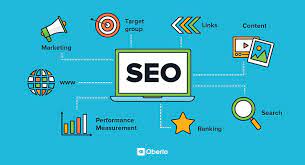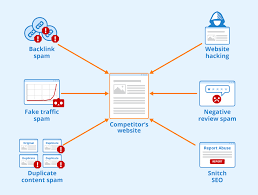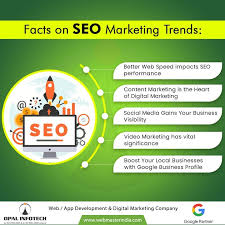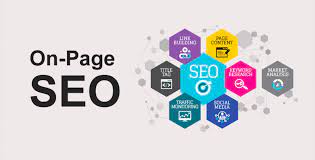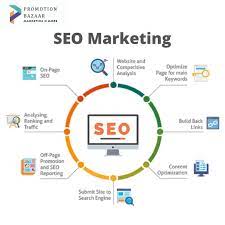Maximising Website Visibility: Effective SEO Strategies for Yahoo
SEO for Yahoo: Optimising Your Website for Better Visibility
When it comes to search engine optimisation (SEO), most focus is often placed on Google. However, overlooking other search engines like Yahoo can mean missing out on valuable traffic and potential customers. Optimising your website for Yahoo is essential to ensure that your content reaches a wider audience and ranks well in this popular search engine.
Understanding Yahoo’s Search Algorithm
Yahoo, like Google, uses a complex algorithm to determine search rankings. While the specifics of Yahoo’s algorithm are not as widely known as Google’s, there are some key factors that can help improve your website’s visibility on Yahoo:
- Quality Content: Just like with Google, high-quality, relevant content is crucial for ranking well on Yahoo.
- Keywords: Using relevant keywords in your content and meta tags can help Yahoo understand what your website is about.
- Backlinks: Building high-quality backlinks from reputable websites can improve your site’s authority in the eyes of Yahoo.
- User Experience: Ensuring that your website is user-friendly and easy to navigate can also positively impact your rankings on Yahoo.
Tips for Optimising Your Website for Yahoo
To improve your website’s visibility on Yahoo, consider the following SEO tips:
- Optimise Meta Tags: Make sure your title tags and meta descriptions are descriptive and contain relevant keywords.
- Create Quality Content: Regularly update your website with fresh, engaging content that provides value to your audience.
- Improve Site Speed: A fast-loading website is not only user-friendly but also favoured by search engines like Yahoo.
- Mobile-Friendly Design: Ensure that your website is responsive and looks good on mobile devices as this can impact rankings on Yahoo’s mobile searches.
The Importance of SEO for Yahoo
Incorporating SEO best practices specifically tailored for Yahoo into your digital marketing strategy can help drive organic traffic to your website and improve its overall visibility online. By understanding how to optimise your site for both Google and Yahoo, you can maximise your reach and attract a diverse range of visitors who use different search engines.
In conclusion, while Google may dominate the search engine market share, optimising your website for other search engines like Yahoo should not be overlooked. By implementing effective SEO strategies aimed at improving visibility on Yahoo, you can increase traffic, attract new customers, and ultimately grow your online presence successfully.
8 Essential SEO Tips for Yahoo: Boost Your Search Rankings and Visibility
- Focus on high-quality, relevant content to improve search rankings.
- Optimise meta tags and descriptions for better visibility in Yahoo searches.
- Use keyword-rich titles and headers to enhance SEO performance.
- Ensure your website is mobile-friendly as Yahoo values responsive design.
- Improve page load speed to reduce bounce rates and increase user engagement.
- Utilise backlinks from reputable sites to boost credibility and authority.
- Incorporate local SEO strategies if targeting specific geographic areas.
- Regularly update content to keep it fresh and relevant for search engines.
Focus on high-quality, relevant content to improve search rankings.
Focusing on high-quality, relevant content is a crucial tip for improving search rankings on Yahoo. By creating content that is informative, engaging, and tailored to your target audience’s needs, you not only enhance the user experience but also increase the likelihood of your website being ranked higher in Yahoo’s search results. Quality content that incorporates relevant keywords and provides value to users is key to establishing authority in Yahoo’s algorithm and attracting organic traffic to your site.
Optimise meta tags and descriptions for better visibility in Yahoo searches.
Optimising meta tags and descriptions is a crucial aspect of SEO for Yahoo that can significantly enhance your website’s visibility in Yahoo searches. By ensuring that your meta tags and descriptions are descriptive, relevant, and contain targeted keywords, you can improve the chances of your content being accurately indexed and displayed in search results on Yahoo. Crafting compelling meta tags and descriptions not only helps Yahoo understand the context of your web pages but also entices users to click through to your site, ultimately driving more organic traffic and increasing your online presence effectively.
Use keyword-rich titles and headers to enhance SEO performance.
To enhance your SEO performance on Yahoo, it is crucial to utilise keyword-rich titles and headers throughout your website. By incorporating relevant keywords into your titles and headers, you can improve the visibility of your content in Yahoo’s search results. This practice not only helps Yahoo’s algorithm understand the context of your web pages but also increases the likelihood of your site ranking higher for specific search queries. Strategic use of keywords in titles and headers can significantly boost your website’s SEO effectiveness on Yahoo, driving more organic traffic to your site and improving overall search engine visibility.
Ensure your website is mobile-friendly as Yahoo values responsive design.
Ensuring that your website is mobile-friendly is crucial when optimising for Yahoo. Yahoo places a high value on responsive design, which means that websites that are easy to navigate and visually appealing on mobile devices are more likely to rank well in Yahoo’s search results. By prioritising mobile-friendliness and implementing responsive design principles, you can improve your website’s visibility on Yahoo and provide a better user experience for visitors accessing your site from smartphones and tablets.
Improve page load speed to reduce bounce rates and increase user engagement.
Improving the page load speed of your website is a crucial SEO tip for Yahoo that can significantly impact user experience. By ensuring that your web pages load quickly, you can reduce bounce rates and keep visitors engaged on your site. A fast-loading website not only enhances user satisfaction but also signals to search engines like Yahoo that your site is reliable and user-friendly, potentially leading to higher rankings in search results. Prioritising page load speed as part of your SEO strategy for Yahoo can ultimately result in better user engagement and improved overall performance of your website.
Utilise backlinks from reputable sites to boost credibility and authority.
To enhance your website’s visibility on Yahoo, it is advisable to leverage backlinks from reputable websites. By acquiring backlinks from trusted and authoritative sites, you can significantly boost your website’s credibility and authority in the eyes of Yahoo’s search algorithm. These high-quality backlinks act as endorsements of your content, signalling to Yahoo that your website is a reliable source of information worth ranking higher in search results. Incorporating this strategy into your SEO approach can help elevate your website’s standing on Yahoo and attract more organic traffic to your online platform.
Incorporate local SEO strategies if targeting specific geographic areas.
Incorporating local SEO strategies is essential when targeting specific geographic areas on Yahoo. By optimising your website with location-specific keywords, creating localised content, and ensuring your business information is accurate across online directories, you can enhance your visibility to users searching for products or services in those particular regions. This approach not only improves your chances of ranking higher in Yahoo’s local search results but also helps connect you with potential customers in the targeted geographic areas, ultimately driving more relevant traffic to your website.
Regularly update content to keep it fresh and relevant for search engines.
Regularly updating your website’s content is a crucial tip for SEO on Yahoo. By keeping your content fresh and relevant, you signal to search engines like Yahoo that your site is active and up-to-date. This practice not only helps improve your search rankings but also ensures that your audience receives valuable and timely information. Consistently updating content demonstrates authority in your niche and encourages search engines to crawl and index your website more frequently, ultimately enhancing its visibility online.

